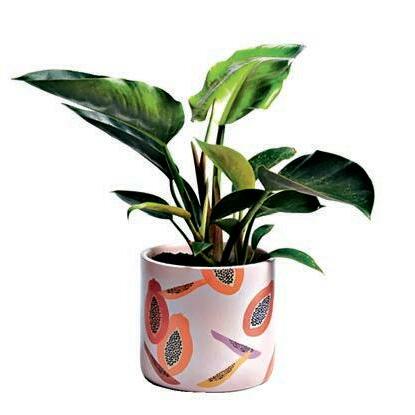
3 minute read
Universe of opportunity
Against all odds
MARIA THATTIL IS USING HER PLATFORM AS MISS UNIVERSE AUSTRALIA TO SPARK CONVERSATION AND CHANGE WHEN IT COMES TO OUR NATION’S STANDARDS OF BEAUTY
WORDS CHARLOTTE BRUNDRETT
When Maria Thattil was crowned Miss Universe Australia last November, it represented the culmination of a career pursuit she never envisioned for herself.
“I never really considered myself to be someone who could show up in pageants because I had misconceptions around what I needed to look like in order to be a Miss Universe; things like not being tall enough or having Euro-centric ideals of beauty, and this has been with me since childhood,” Maria, 28, says.
“I think it stems from what was being projected in mainstream media at the time, which was mainly Anglo-Celtic perceptions of beauty, and even now you’d be surprised, I have people tell me, ‘oh, you don’t look like what I’d expect for an Australian Miss Universe’, because I don’t fit the beach babe stereotype.”
MAIN Maria Thattil is bringing attention to diversity. INSET Maria with her pageant crown.
Against all odds
A proud Indian-Australian woman, Maria backs calls for better representation. Times are changing with greater diversity within Australia’s modelling industry better reflecting our multicultural identity, but there’s still plenty of room for growth.
“The game changer for me was seeing Priya Serrao take the crown for Miss Universe Australia in 2019. She’s an Indian-Australian lawyer and the finalists for that year were so diverse in terms of their careers, aspirations, ethnic background and stories. It became clear to me at that moment that there actually isn’t a mould,” Maria says.
“For that reason, I decided to throw my hat in the ring. Sometimes it takes seeing someone who looks like you or you relate to doing things that maybe you thought you couldn’t, and then you believe you can as well.”
Having completed psychology and management degrees, Melbourne-based Maria was on a different career path as a HR advisor for the Victorian Government before winning her new title. However, even then, she had a social media presence online that championed inclusivity, diversity, representation and equality.
“Winning Miss Universe has been a catalyst for bringing long-term career goals of mine to fruition so much earlier,” Maria says. “Because of this opportunity, I will be launching my own podcast, which I hope provides the foundation for a book down the line and then perhaps a show and by then, who knows, I could be living in New York or cementing my career back here.”
Much like how her own experience has changed her perception of beauty pageants, she hopes to challenge stereotypes of the industry.
“I think when people consider campaigns like Miss Universe, they tend to fixate on how it’s depicted in movies and I think what would really surprise people is the women who are coming through and what they are using the platform for,” Maria says.
“If your aspiration for the platform is to become a supermodel then that’s incredible; if you want to use it to advocate for social justice causes you believe in, also amazing; if you want to start a business — that’s phenomenal, too. The point is, the women who are coming through are diverse, they’re intentional and they know what they want to do and they are using the platform they’ve been given to do it.”
And while the pageant and fashion industry has made great advances in recent years, Maria is quick to point out more progress can be made.
“I think we’re definitely making progress, and I think all progress should be celebrated,” Maria says.
“Having said that, a perfect case in point is my recent efforts to source an Australian person of colour designer for an upcoming shoot, which took a bit more research.” Maria had to make a concerted effort to find PoC (people of colour) labels because they’re not as well represented in Australia’s fashion landscape and are consequently harder to find.
“I try to be intentional with my messaging and I talk about supporting the most marginalised and vulnerable communities in our society, and from a racial lens that’s black, Indigenous or people of colour.”
To see how Maria went in this year’s international contest visit missuniverse.com












